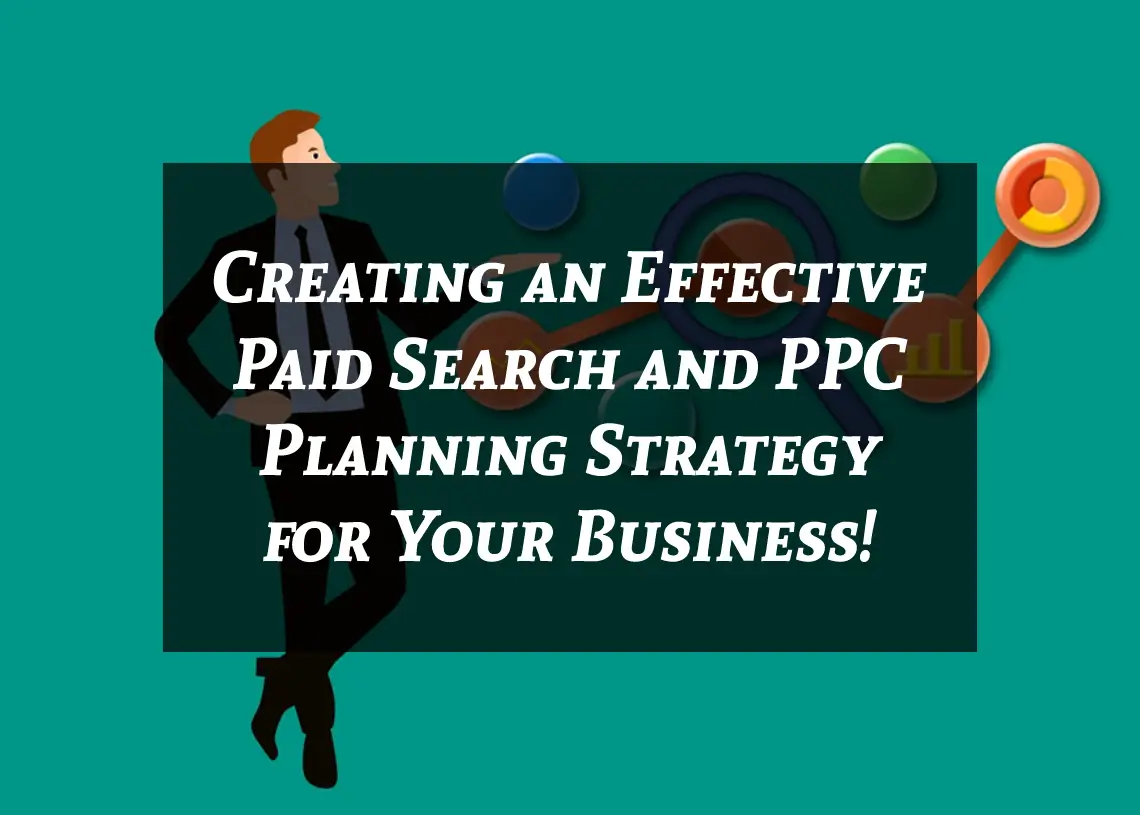Paid search and PPC planning are essential for businesses that want to succeed in the digital age. It can help to increase your visibility online, attract more customers, and even drive more revenue. In this article, we’ll explore what paid search and PPC planning is, the benefits it can offer, and how to create an effective paid search and PPC plan.
What is Paid Search and PPC Planning?
Paid search and PPC planning is the process of researching, creating, and managing a paid search campaign. It involves researching keywords, selecting the right ad networks, targeting a specific audience, and creating compelling ads. Additionally, it involves creating a budget and determining the best way to allocate funds to get the most out of your campaign.
PPC stands for Pay-Per-Click, which is a type of online advertising where businesses pay for each click on their ads. This means that businesses only pay when someone clicks on their ad, making it an effective way to attract targeted customers. Paid search and PPC planning help businesses to create ads that will be seen by their target audience and ensure they are getting the most out of their budget.
Benefits of Paid Search and PPC Planning
Paid search and PPC planning offer numerous benefits to businesses. It can help to maximize the reach of your ads and increase your visibility online. It also can help to increase brand awareness and attract more customers. Additionally, it can help to generate more leads and drive more sales.
Paid search and PPC planning also offers the ability to target specific audiences. This means that businesses can create ads that will be seen by their ideal customers. Additionally, businesses can track their campaign performance to determine which ads are performing the best and make adjustments accordingly.
Paid Search and PPC Planning Statistics
Before diving into the specifics of paid search and PPC planning, it’s important to understand the current state of the industry. According to recent statistics, the average PPC campaign has a click-through rate (CTR) of 2.35%. Additionally, the average cost-per-click (CPC) is $2.69. Furthermore, the average conversion rate (CVR) for PPC campaigns is 5.31%.
These statistics show that PPC campaigns can be an effective way to attract customers, but they also demonstrate the importance of creating a comprehensive plan. Without a well-thought-out strategy, businesses will not be able to get the most out of their PPC campaigns.
Building Your PPC Plan
Now that you understand the basics of paid search and PPC planning, it’s time to start creating your own plan. The first step is to conduct keyword research. This will help you to identify the most relevant and effective keywords for your business. Additionally, it will help you to determine which keywords are the most cost-effective.
Once you’ve identified the best keywords for your business, you can begin to create your PPC campaign. This involves selecting the right ad networks, creating compelling ads, and targeting the right audience. Additionally, you’ll need to set a budget and determine how to allocate funds to get the most out of your campaign.
Paid Search and PPC Planning Tips
When it comes to paid search and PPC planning, there are a few tips that can help you to get the most out of your campaigns. First, it’s important to keep your ads fresh and updated. Additionally, you should create multiple versions of each ad to test which ones are performing the best. Furthermore, you should track your campaign performance regularly to make sure your ads are reaching the right people and that you’re getting the most out of your budget.
It’s also important to use the right keywords. This involves researching the best keywords for your business, creating keyword lists, and targeting the right audience. Additionally, you should use negative keywords to ensure that your ads are not being seen by the wrong people.
Keywords and Targeting in PPC Planning
In order to get the most out of your PPC campaigns, it’s important to use the right keywords and target the right audience. This means doing research to determine the best keywords for your business and creating keyword lists. Additionally, it means targeting the right audience with the right message.
When it comes to targeting, you should focus on the people who are most likely to be interested in your products or services. This means targeting people who have shown an interest in similar products or services, as well as those who have visited your website or social media pages. Additionally, you should target people who are likely to take action and convert.
Measuring the ROI of Your PPC Plan
Once you’ve created your PPC plan and launched your campaigns, it’s important to track and measure your performance. This means tracking your click-through rate, cost-per-click, and conversion rate. Additionally, it means tracking your return on investment (ROI) to determine if your campaigns are successful.
You should also track the performance of individual campaigns, ad groups, and keywords to determine which ones are performing the best. Additionally, you should track the performance of different ad networks to see which ones are driving the most results.
Creating an Effective Paid Search and PPC Budget
When it comes to creating an effective paid search and PPC budget, it’s important to start with a realistic goal. This means setting a budget that will allow you to reach your desired results. Additionally, it means allocating funds to the campaigns and keywords that will be most effective.
It’s also important to set a budget for each campaign, ad group, and keyword. This will help you to track the performance of each and make adjustments as needed. Additionally, it will help you to make sure you’re getting the most out of your budget.
Paid Search and PPC Planning Tools
When it comes to paid search and PPC planning, there are numerous tools that can help to make the process easier. For example, Google Ads and Bing Ads offer robust tools for creating and managing campaigns. Additionally, there are numerous third-party tools that can help with keyword research, ad creation, and more.
It’s important to find the tools that best fit your needs and budget. Additionally, it’s important to make sure that the tools you’re using are up-to-date and accurate. This will help to ensure that your campaigns are successful and that you’re getting the most out of your budget.
Conclusion
Paid search and PPC planning can be a powerful tool for businesses that want to succeed in the digital age. It can help to increase your visibility online, attract more customers, and even drive more revenue. By following the tips outlined in this article, you can create an effective paid search and PPC plan that will help you to get the most out of your budget.
If you’re looking for help with your paid search and PPC planning, our team of experts can help. Contact us today to learn more about our services and how we can help you to create an effective PPC plan.




